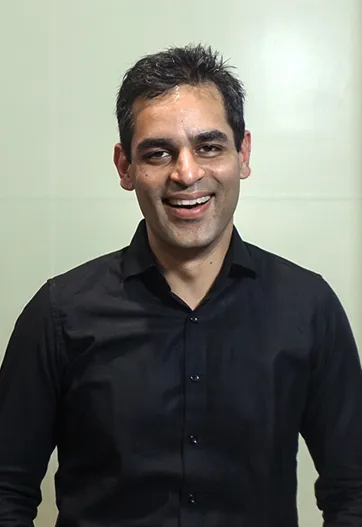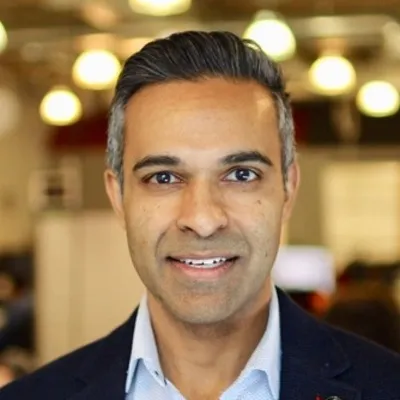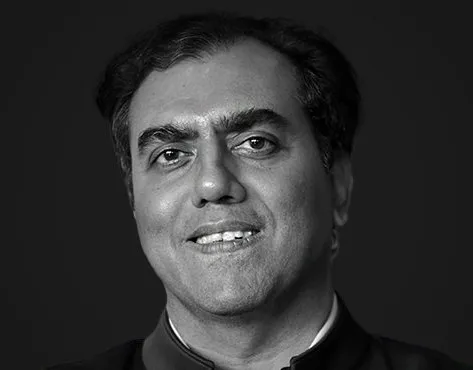A tale of two startup ecosystems: how do Indian entrepreneurs differ from their Silicon Valley counterparts?
Bengaluru may have been tagged India’s Silicon Valley, but there are numerous differences in their startup environments. Investors and mentors weigh in on how entrepreneurs in India stack up against their counterparts in the West.

Indian startup ecosystem has always looked towards the West. Startup capital Bengaluru is often called the Silicon Valley of the East. And though we aspire to be its equal, the truth remains that we are at a nascent stage when compared to Silicon Valley. Cultures differ, but comparisons abound – over business models, investments, mentorships, and more. But, what about startup founders? How do they differ from their Silicon Valley counterparts?
In many, many ways, according to investors, mentors, and founders who operate in the Indian startup ecosystem.
Indian entrepreneurs have often been blamed for copying models that worked in the West. However, in some sectors, Indian startups have found a way to build a working model. The likes of Flipkart and Ola have shown that their businesses could work, with tweaks for the Indian customer base.

Ankur Warikoo
Ankur Warikoo, angel investor, and Founder of NearBuy, says, “The best thing about Indian entrepreneurs is that they don’t take 'no' for an answer. They are ready to go beyond tech for that: cash-on-delivery is an anti-tech solution to a problem (ecommerce players managed to gain customers’ trust with it). Entrepreneurs in Silicon Valley are more focused on engineering; they would think of a better way for payment without a people-intensive, cost-inefficient solution like CoD. This comes to us naturally: merge patterns to build solutions.”
However, anti-tech solutions are not cost-efficient. “Silicon Valley companies are more product-driven and deep-tech oriented. In India, things are moving towards this direction with the ecosystem maturing and with VCs bringing Indian startups to the US,” says Sonal Puri, startup mentor and Webscale CEO.
Point to note: India is a very heterogenous market – in culture, language, income, age brackets, locations etc – and products made here can be used globally. But it is the asset-light, digital solutions that can scale faster.
In contrast, Silicon Valley deals with a more homogenous population. California behaves pretty much the same as New York or Texas. This restricts the market for its B2C startups. For instance, while Indian companies are building interfaces with vernacular content, the US ones need not look beyond English. These factors contribute to the overall abilities of the startup in terms of serving different peoples.
The pedigree conundrum
India has numerous IITs and IIMs, which have produced arguably the largest number of entrepreneurs, be it Infosys Founder NR Narayana Murthy or Flipkart founders Sachin Bansal and Binny Bansal. However, we also have the likes of Paytm Founder Vijay Shekhar Sharma and Freshworks Founder Girish Mathrubootham, who have successfully built unicorns despite attending colleges nobody has heard of.
So how relevant are the IIT, IIM, BITS, XLRI, ISB, or NIT tags for an Indian startup founder?
India has almost no success stories from college dropouts, as the US does (think Bill Gates and Mark Zuckerberg).
According to Sreejith Moolayil, Co-founder of True Elements, top VC firms love founders from IIT rather than skilled ones. “In India, the IITian network is strong, and this is helpful in any ecosystem. In Silicon Valley, experience matters more than education. They don’t look up to you just because you are from Harvard. The VCs also give more attention to experienced founders because, after all, they invest in individuals in the initial stages, often up to Series B. The best a degree from an Ivy League university can get you is 10 minutes of extra attention from a VC,” he says.
However, for investors taking a risk with early-stage startups, pedigree is a sign that the founder is not just smart but also committed to a cause for the long term.

Ray Newal
According to Ray Newal, Managing Director (India) of TechStars Accelerator, investors are looking for positive signals on which entrepreneurs are capable of being successful.
“Coming from prestigious schools across the world is a check mark for an investor. Being a co-founder or a startup employee previously is another signal that helps an investor make a bet. If you have none of this in your history, then you have only your business plan – and most people don’t even know how to do it.”
That said, a founder who comes from a prestigious institute alone will not be enough to run a company successfully.
Priya Rajan, Market Lead for India at Silicon Valley Bank, observes that successful founders coming from India have a unique domain expertise in what they are building. “They fare equal or better than founders from the Valley.”
Priya, who has worked with student entrepreneurs in top universities across the world, recommends that founders consider augmenting the team with people with varied skill sets.
Paying it forward
Being a developing country with unique traits and struggles in culture, economy, and education has had an impact on entrepreneurship in India. It seems to have restricted some possibilities for startup founders in the country, compared to their Silicon Valley counterparts.
Ankur explains, “Culturally, we are not grown to trust. When someone is nice to you, you are suspicious. We lack faith in our own institutions, governance, judiciary, and businesses. But collaborative nature is fundamental to entrepreneurship. Indian entrepreneurs don’t share or help a lot compared to their Silicon Valley counterparts in terms of network, funding, or product. In the Valley, you may just get help from a stranger working out of a café you where you go to have coffee.”
Lalit Singh, angel investor and COO of Valley-based edtech startup Udacity, agrees.
“Silicon Valley works on the ‘pay it forward’ principle. Everybody who is a part of the Silicon Valley ecosystem – entrepreneurs, investors, angels – all help each other without any expectation or returns. It will come back to you! India will take 10-20 years to get there,” he says.
Sreejith opines that consciously or unconsciously we look at a person based on his/her caste, education, pedigree, company of work, etc. “Such baggage does not exist for their US counterparts. The class system in India – in terms of education, family, or net worth – will take a long time to change. It is tough for a middle-class person from a non-business family to start up,” he adds.
However, being a developing nation has own advantages too – especially in terms of cost control.
Ray says, “It is possible to run a company with lesser money in India than other markets. Most first-time entrepreneurs in India, especially those in early 20s, live with parents or are supported financially by them. This is unacceptable in the US. As an IT super power, India has lower financial overheads, which enables staying in the game longer and pivoting when needed.”
Divergent educational systems
The educational system in India and the US also differ greatly, which impacts the respective approaches to entrepreneurship in both countries.

Sonal Puri
Sonal, of Webscale, elucidates, “In the US, since school (kindergarten to elementary) there are entrepreneurship fairs where students have to make a product and sell it, or fundraise for a charity/cause. Their educational system is set up to show them the power of earning, public speaking, etc.”
On the contrary, in India the norm is spoon feeding in schools; students often choose colleges and careers according to their parents’ wishes. Entrepreneurship is nowhere in the picture. This directly correlates to the lack of essential qualities for an entrepreneur, including risk taking.
As Sanjay Nath, Managing Partner at Blume Ventures, asks: “Which startup has been created without taking risks? Let's take the example of Uber - (co-founder) Travis Kalanick and team had to battle taxi unions, who felt this game-changing platform would threaten their livelihood. But Uber chugged along and navigated these issues, and became an 'uber-successful' company. Risk taking is key to success in entrepreneurship - taking calculated risks, to be more specific.”
In India, entrepreneurship was, till recently, centred on family-run businesses, which includes minimal risk. The first-generation entrepreneur using tech for scale may not be an anomaly any more.
Yet, as Priya reiterates, the appetite for risk is low compared to the US. She clarifies, “This is amplified when a young graduate is expected to manage the household for financial reasons. So they are inclined to take a well-paying job rather than starting up. One of the ways to break the mould is to encourage entrepreneurship (hands-on) in early education (middle school, high school, colleges and not just as an MBA).”
Ray, of TechStars, is also critical of the shortcomings of Indian educational system. “At schools and colleges, kids are under pressure for memorising and mugging up. What good is that? In the real world, all you need is decision-making ability and know how to process data.”
The fear of failure
Risk taking is worrying because of the fear of failure. In India, we rarely hear stories of failure - not because they don’t happen but because the media has made celebrities out of successful entrepreneurs.
Sreejith says, “In Silicon Valley, a ‘failed entrepreneur’ is a badge of honour. In India, they are – more often than not – looked down upon. Failed entrepreneurs can’t even find a job easily. Whatever lessons they have learnt from starting up go unnoticed.” Ankur concurs, adding that, in the Valley, failed entrepreneurs are always willing to help new kids with anything they wished they knew when starting up.

Sreejith Moolayil
However, from an institutional investor’s view point, Sanjay, of Blume, says that failure, if and of itself, should not be overplayed. “If you have tried three times and failed, what it shows is you are comfortable with taking risk and making mistakes - a good quality. But it doesn't show you have learnt how to succeed. Whats more interesting is looking at 3 losses plus 1 win, on balance; if you have succeeded at least once, it shows that you know what mistakes not to repeat but have also learnt what works; that gives more confidence to the investor.”
Valuing investors’ money
In the US, even young founders often have a decent amount in savings, as they start work early. But most young entrepreneurs in India do not have this luxury.
Sanjay says an investor would still be impressed if they show “skin in the game” where the founder(s) show commitment to their own startups by giving up salary, taking pay cuts, and getting friends' and family's investments in the early stages .
Early-stage startups in India were notorious for splurging investors’ money. (The fall of housing.com was attributed to its founding team of 12 IITians splurging and mismanaging the team.) In stark contrast, the Valley’s entrepreneurs treat investors’ money with a lot of value. This could be because more than half the entrepreneurs in the Valley are immigrants. They have gone through the pain of transformation of uprooting to a different country; they want the best outcome. (WhatsApp Co-founder Jan Koum was a refugee from Ukraine.) It is not their own money, and they put it to good use.
Open to mentorship
Most investors opine that Indian entrepreneurs often have a confidence issue. Priya points out that there is a glaring difference around effective communication, product positioning, and confidence, when you compare Indian entrepreneurs to their Silicon Valley counterparts.

Priya Rajan
In the US, you are on your own by the age of 18 – with educational loans for college and part-time jobs for sustenance. This helps build responsibility and confidence. If this makes entrepreneurs in the US more sure about their own opinion (thereby not opening up for mentorship), in India the case is just the opposite.
According to Sonal, we have a culture of being humble; we listen to others’ opinions and are grounded when it comes to being mentored.
This was evident at TechStars India, where the mentors found that the mentees were excited to learn better, unlike Silicon Valley entrepreneurs’ who are more headstrong on their approach. Being open to mentorship also means being open to experimentation and being flexible – essential qualities for entrepreneurs.
According to Ray, entrepreneurs want a framework to work through. “They often ask mentors: what would you do if this happened to your company? They don’t want to be told how to do it, but how to think about a problem. We need to invest in them, avoid telling them what to do. Otherwise we end up with a society of mindless people. They are the right people to solve the problem: so the answer has to come from them; not anyone else,” Ray says.
But there’s a fine balance that needs to be maintained here.
Sanjay clarifies: “One interesting quality for an entrepreneur is intellectual humility - accepting that you don’t know everything. It makes you more open to listening, feedback, and discovery. Be emotionally mature and intellectually humble. Of course, you can’t listen to everyone. Be flexible, but don’t stray from your mission.”
Closing the gap
The Valley has seen the most ground-breaking innovations over the past five to six decades, whereas the Indian startup world was born around 2008. Yet, the gap is slowly closing between the two.
Startup unicorns from India have had a presence in the Valley for ages. Now many B2B startups are moving/expanding there as most of their clients are from the West, and a physical presence is a value addition. Some VC firms are also moving startups to the Valley to grow them there in a structured manner.
Entities like Arka Ventures – a joint effort of Blume Ventures, BGV, and Emergent Ventures – are helping B2B startups scale up in the US. Last year, BGV was instrumental in moving its portfolio company Drishti, an AI startup, to the Valley, as was Nexus Venture Partners in taking SaaS platform Druva.
Sonal reiterates how these investors help their portfolio startups with networking too. “Nexus Venture Partners’ Founder (and angel investor) Naren Gupta had invited me and Druva CEO Jaspreet Singh for dinner with our families at his house when Druva moved to the Valley. It is nice to see investors doing this; we had a casual conversation in an informal setting,” she says.
On a related note, Sanjay says Indian corporates could take leaf form their global/Silicon Valley counterparts. “There, corporates and startups work as partners. Many corporates have venture arms and regularly invest in and support startups by recognizing IP development and new ideas, and business creation happens outside their walls”.
The timing is right

Sanjay Nath
The time has never been better for entrepreneurship to grow in India. According to Sanjay, many Indian students in foreign universities are keen on exploring and discovering opportunities back home.
"In India, many CEOs and senior executives explore leaving corporate jobs and becoming angels, board members or even taking senior roles with Series B/C funded startups. The massive consumer opportunity, further fueled by Jio-fication, and this 'return of talent' are big driving factors."
The focus on startups has evolved a lot in India with programmes like Startup India and Digital India. The Indian entrepreneurial spirit is at a stage where startups are audacious enough to think global. Unicorns like Ola, OYO Rooms, Freshworks, etc. are already expanding across continents.
But let’s not get ahead of ourselves.
As Sachin Unni, Partner at Zeroth.ai, says: “Someone facing a problem can build the solution much better. We now have a larger talent pool; but quality needs to be better.”
The next 10 years of Indian entrepreneurship, Lalit says, will be very different from the last 10 years. The success of Flipkart and Ola has shown the value creation of Indian startups.
And this is just the beginning.
(Edited by Teja Lele Desai)








